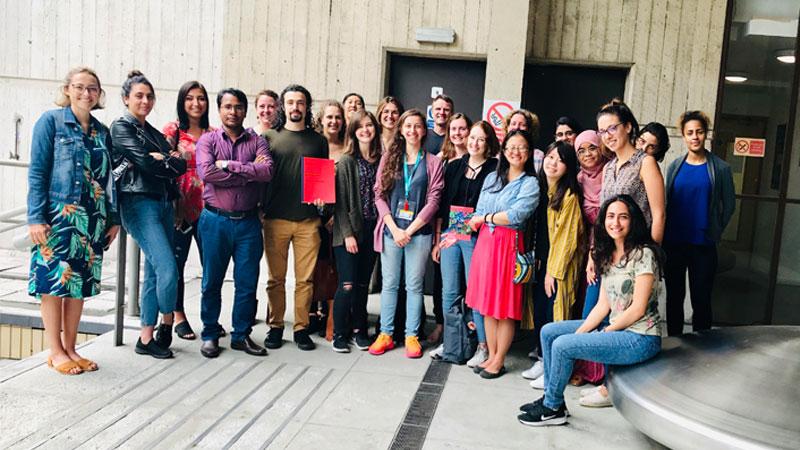Students from the Nutrition in Emergencies short course have utilised their knowledge from their studies to volunteer during the coronavirus pandemic. They could be joined by new students on the course that next runs from 22-26 June (limited places are still available).

Past participants of the Nutrition in Emergencies course are using their expertise to help mitigate the pandemic across the globe. For example, Charmaine Browne, who completed the course in 2018, is leading the food security response to COVID-19 in New York City.
Ayan Harare, who also graduated from the course in 2018, is working with EU Aid in Kenya. In their emergency response, EU Aid have been providing immediate support to the Response Plans of international organisations. While volunteering for the organisation in Kenya, Ayan has helped to provide immediate humanitarian support by helping to set up hand washing areas and nutrition measurement.
Emily Hockenbull has been working with People in Need UK (PIN UK), a centre of technical expertise in international development that has partnered with UK universities to investigate development challenges and create new aid solutions. As a Nutrition Adviser, Emily has been working to provide nutrition security throughout the pandemic to ensure those who are most vulnerable have improved access to nutritious food. She also previously worked for the global humanitarian organisation Action Against Hunger.
Lucy Hall, who graduated from the Global Public Health Nutrition MSc, has been working with Save the Children UK as a COVID-19 Humanitarian Public Health Capacity Strengthening Support Officer. In this role, Lucy has worked on developing guidance for COVID-19 pandemic training for community health workers and has curated learning materials and COVID-19 guidance for public health sectors.
The next Nutrition in Emergencies course runs from 22-26 June and will feature speakers from Save the Children, Action Against Hunger, MSF and People in Need. The course provides students with the knowledge and skills needed to prepare for the complexity and reality of working in an emergency context. It will address the different types of malnutrition and their direct and underlying causes, as well as measuring malnutrition at the population and individual levels and common nutritional interventions.
Find out more about the Nutrition in Emergencies short course.


